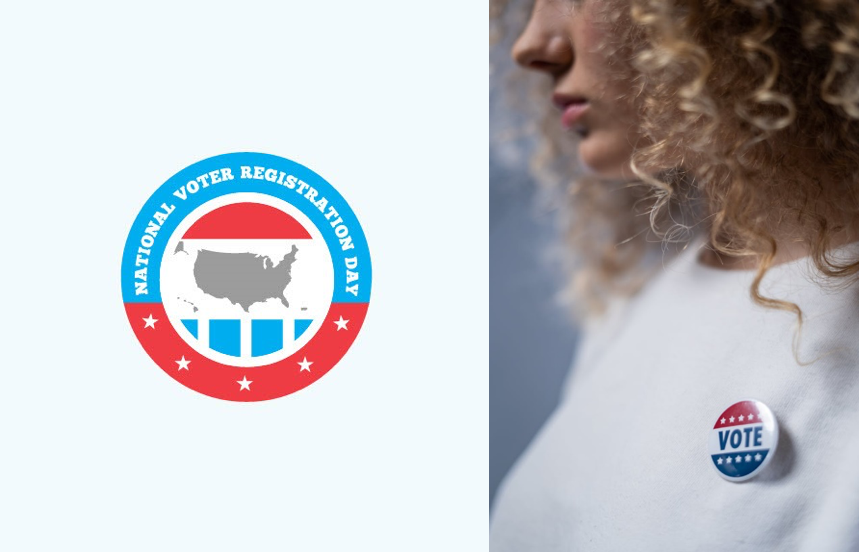GET #VOTEREADY
• Did you know that astronauts are able to vote from space? Voting in space has been possible since 1997! Secure electronic ballots are uplinked by Johnson’s Mission Control Center to a voting crew member aboard the International Space Station. Astronauts are able to cast their vote and then their completed, encoded ballots are downlinked and delivered to the County Clerk’s office by email. Many astronauts choose to vote as Texas residents because Houston is where they complete their training! You can read more about this process on NASA’s website.
• Gerald Ford is the only person who served as president and vice president without being elected to either office. His 895-day term in office is also the shortest in US history for any president who did not die in office. Ford was appointed as vice president by President Nixon in 1973 after Spiro Agnew resigned from the position. Less than a year later, Nixon resigned from the presidency after the Watergate scandal and Gerald Ford assumed the presidency. Learn more about Ford’s ascension on History.com.
• The first woman ran for president in 1872. Victoria Woodhull ran on a platform of women’s suffrage, regulation of monopolies, an eight-hour workday, and welfare for the poor. Her name only appeared on the ballot in some states and no one knows how many votes she received because they were apparently not counted. You can learn more about Victoria Woodhull’s life and political aspirations on History.com.
• Not everyone votes with ballots. Even the most basic element of voting in the USA, the ballot, is not a universal concept. The very first known elections, which were held in Ancient Greece, used black and white pebbles to cast their votes. The Romans substituted balls of clay for pebbles and used their helmets as ballot boxes. In the early days of the American colonies, voters used colorful beans or corn kernels!
• American elections are usually held on Tuesdays in November. This practice began when many Americans were farmers, who don’t exactly have a Monday-through-Friday, 9-5 schedule. Growing and harvesting was usually over by November, giving farmers more time to step away from work and vote. Several countries, including Australia, Brazil, and Greece, hold elections on Saturdays or Sundays when fewer people will be working. Weekend voting certainly has its advantages, but it also complicates matters for those who observe Saturdays or Sundays as days of worship. The Netherlands vote on Wednesdays for a very practical reason: most schools have half-days on Wednesdays, and most polling places are inside schools!

